A Filmmaker's Guide to: 5 Films by Quentin Tarantino
A List
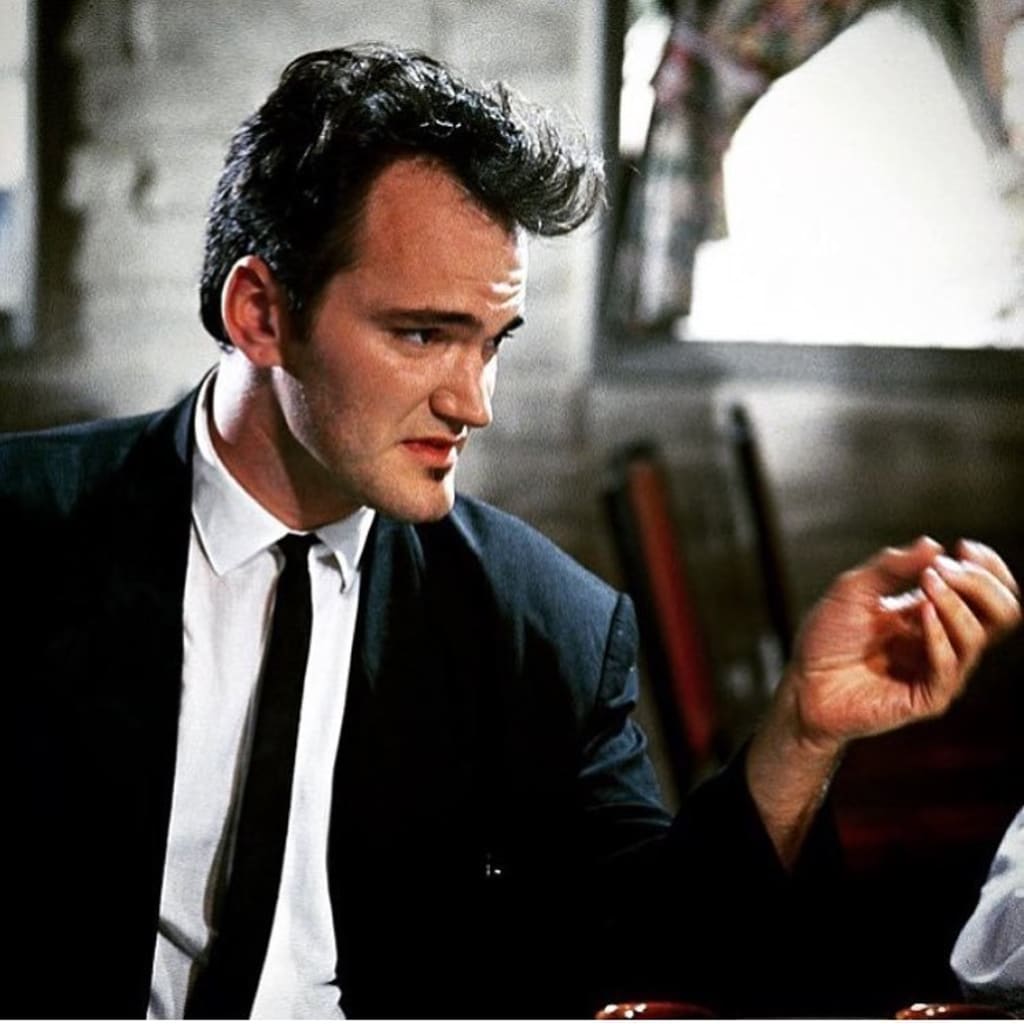
Quentin Tarantino is one of this generation's most recognisable directors with his style of jazz music and brutal violence, stereotypes of racial, gender and occupational qualities have often been admired and criticised by many people who work in and out of the film industry - especially those upset with his over-usage of the derogatory term for African American people. Throughout his film career, he has been adamant with his attempt to convey stories that are normally subversive from the main key genres, historically and both contemporary.
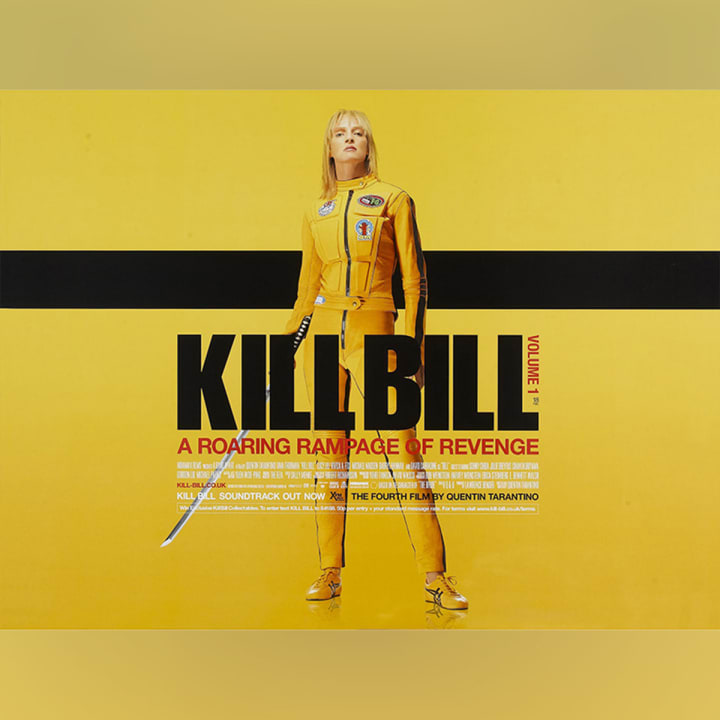
When Tarantino writes a script, his use of dialogue is often flamboyantly accurate to the use of language associated with the time and place, occupation and residence, class and society concerning the characters. His cinematography skills is known to have been revolutionary (although, if you watch his films, you will notice his cinematography style is a combination of a bunch of other directors. Trust me, you'll be pleasantly surprised).
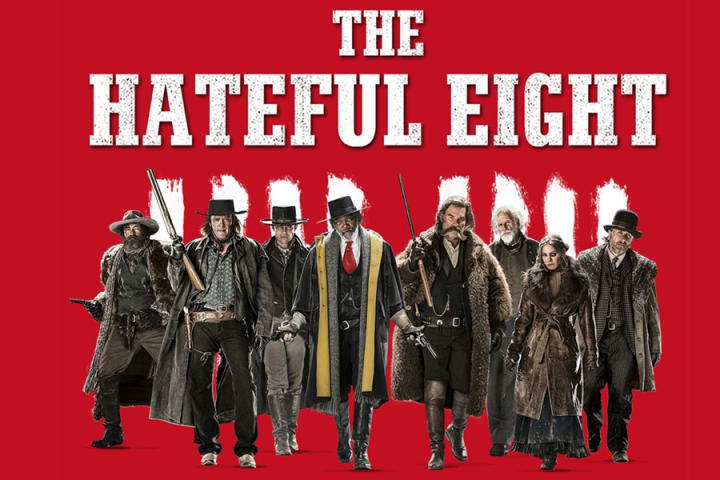
This list seeks to explore the five films that are known as Quentin Tarantino's best pieces of work as director, writer or producer (or even all three) and we'll go through exactly what they add to contemporary film as a whole. These films are in no particular order, but I did have the liberty of putting my favourite at the top as number one.
5 Films by Quentin Tarantino
5. Inglorious Basterds (2009)
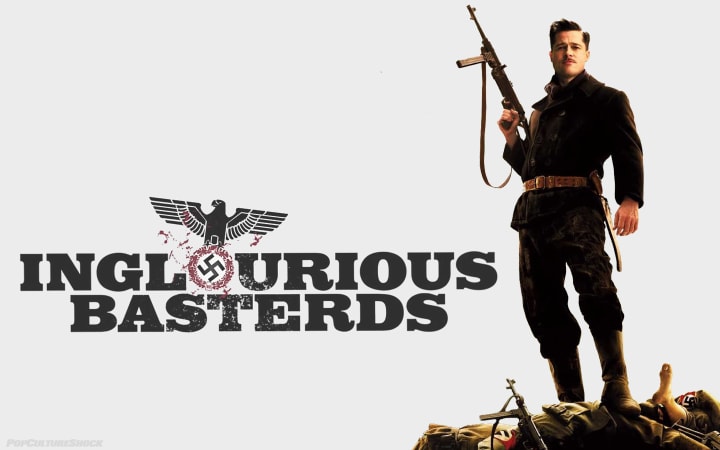
This film was an attempt at World War 2 drama by Tarantino and as we notice, it is another one of his stereotype usages which obviously had some root in the reality of treatments, tortures and the horrid violence suffered by the Jewish people at the hands of the Nazis. One great thing that Tarantino does is he fictionalises the situation ever so slightly in order to create humour because we may like the reality of violence but I bet you also like to see Hitler get shot in the face a billion times.
4. Django Unchained (2013)
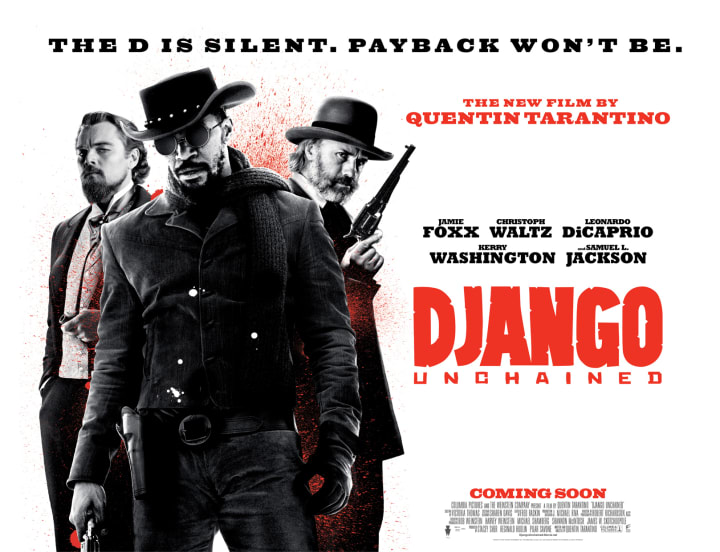
One of Tarantino's historical crime attempts, this film really does show us the violence of history that normally, is dumbed down so that nobody is offended. Tarantino, with all of his ability to showcase this, also presents us with representative and symbolic characters who are icons of their own social bubbles. Tarantino is very good at showing visuals within the storyline, these visuals are integral for getting us to understand what is very real. Mostly, because ironically, cinema is not supposed to be real. Tarantino therefore, is a director of a revolution against the fantasy of life presented by cinema. So he does not present us with fantasy at all.
3. Reservoir Dogs (1992)
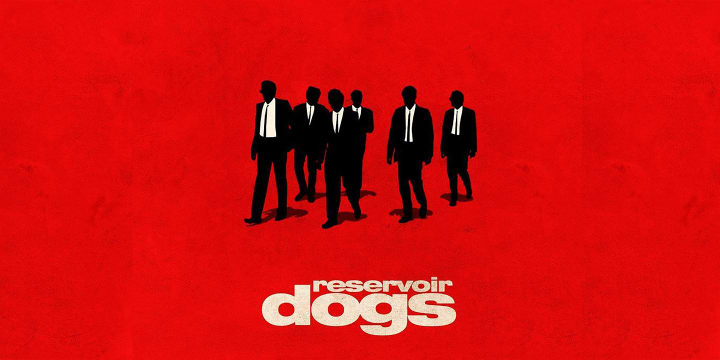
Tarantino's very first film is, today, considered a visionary attempt at truly criminally based cinema. By this time, crime is an open genre, the Hayes' Code is long gone and it's a free playing field for everyone. Tarantino takes the violences of the everyday and multiplies them by a thousand, locks them in small spaces and shows us the very real results of these desperations. It is simplistic but absolutely brilliant in its visuals.
2. Pulp Fiction (1994)
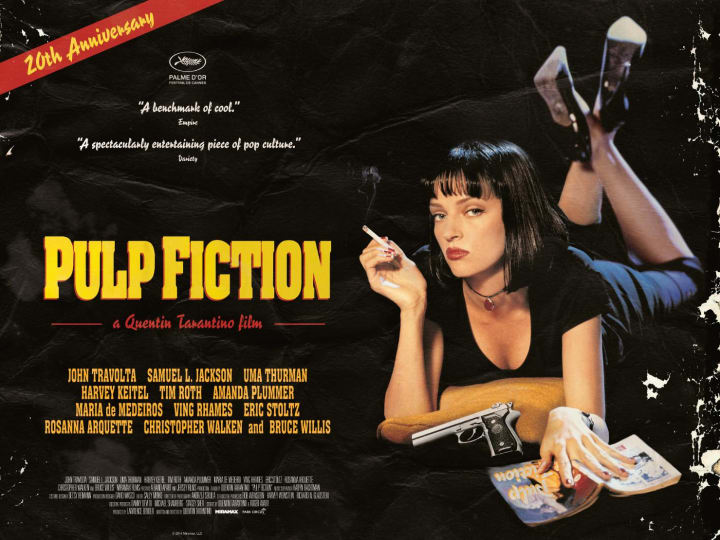
As one of the most iconic movies of the 1990s, "Pulp Fiction" (1994) makes progress in the world of crime cinema, ultimately leaving us with characters that others have tried to be reused over and over again. But, nobody can quite match the perfection of the characters in this masterpiece, even though they are all satirical parodies of themselves, their own films and the stereotypes they represent. For example: the dance scene between Uma Thurman and John Travolta is basically just a parody of Travolta's own character from "Saturday Night Fever".
1. Jackie Brown (1997)
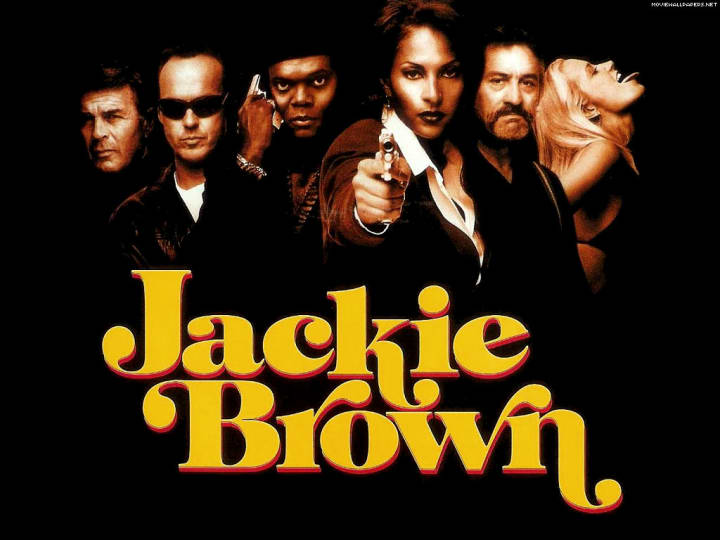
"Jackie Brown" (1997) is my personal favourite film directed by Tarantino because of the fact that it shows us just how many sub-plots can manage to make an entire film if meticulously planned and storyboarded. Tarantino's storytelling talent is depicted most in this film and, from "Pulp Fiction" (1994), this is probably the most complex of his plots containing some of the most complex characters as well. It really did a lot for moving along the genre of crime in the contemporary cinema world.
Conclusion
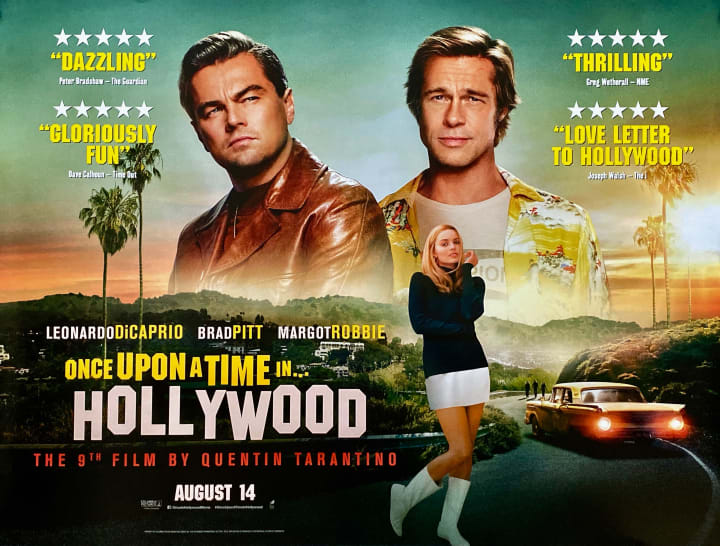
Throughout his career, Tarantino has been considered many things, but very few times has he ever been considered a master storyteller. His complex storylines filled with characters that are complex designs of dimensions of their jobs, their races, their lifestyles and even their political views are able to create worlds that are a direct satire of the way we live. In this reality, Tarantino wants to showcase that there's not only violence in everyday life, but he also rejects the idea that film - with all of its influence - should be a fantastical image of violence. Instead, it should show us what happens when these situations are played out, whether real or fictional.
About the Creator
Annie Kapur
200K+ Reads on Vocal.
English Lecturer
🎓Literature & Writing (B.A)
🎓Film & Writing (M.A)
🎓Secondary English Education (PgDipEd) (QTS)
📍Birmingham, UK


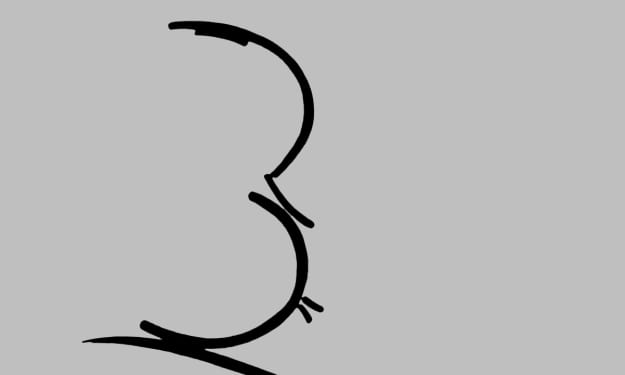



Comments
There are no comments for this story
Be the first to respond and start the conversation.